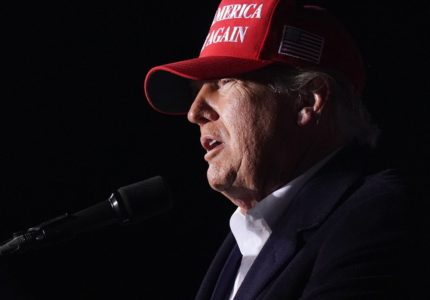A New York judge has scheduled President-elect Donald Trump’s sentencing in his hush-money case for January 10, just days before his anticipated inauguration. Justice Juan Merchan, who presided over the trial, indicated that Trump would receive an “unconditional discharge” rather than jail time, probation, or fines. The court also allowed Trump to attend the sentencing virtually or in person.
The case, stemming from 34 felony counts of falsifying business records, relates to a $130,000 payment to adult-film star Stormy Daniels during Trump’s 2016 presidential campaign. This payment was allegedly made to silence Daniels about an affair Trump has denied. Despite being found guilty, Trump has consistently dismissed the case as a politically motivated attack.
Donald Trump Denounces Case as “Rigged Charade”
Donald Trump took to his Truth Social platform to denounce the judge’s sentencing order as an “illegitimate political attack” and a “rigged charade.” The president-elect argued that the case undermines the Constitution and the presidency itself. Trump’s spokesperson, Steven Cheung, echoed these sentiments, labeling the case part of a broader “witch hunt.”
Cheung emphasized that Donald Trump must be free to focus on the presidential transition without the burden of legal proceedings. “President Trump must be allowed to execute the vital duties of the presidency, unobstructed by remnants of these hoaxes,” Cheung said. Trump has maintained his innocence, insisting the charges were designed to derail his 2024 presidential campaign.
Legal Battle Over Sentencing Amid Governance Concerns
Donald Trump’s legal team argued that the ongoing case could impede his ability to govern effectively during his presidency. In his latest motion, Donald Trump requested the dismissal of the charges or a delay in sentencing until he leaves office in 2029. Justice Merchan, however, declined these requests, stating that the court had alternatives to address Trump’s concerns without overturning the jury’s verdict.
One of the measures suggested by Justice Merchan was guaranteeing a sentence without prison time. While acknowledging the challenges posed by the case, the judge reaffirmed the judiciary’s independence and rejected the notion that Trump’s presidency should exempt him from accountability.
A Polarizing Case and Its Implications for Democracy
The case has reignited debates about the intersection of legal accountability and political power. Trump’s supporters view the proceedings as an extension of partisan attacks aimed at weakening his political influence. Critics, however, argue that the case underscores the importance of upholding the rule of law, regardless of political status.
As Donald Trump prepares to take office, the January 10 sentencing looms as a significant moment in his controversial political career. Whether appearing in person or virtually, the president-elect will face a court order that could have far-reaching implications for his presidency and the broader U.S. political landscape.
Donald Trump’s Conviction and Presidential Immunity: The Legal Battle Unfolds
In July, the U.S. Supreme Court ruled that presidents enjoy broad immunity from criminal prosecution for “official actions” undertaken while in office. This landmark decision appeared to bolster Donald Trump’s argument that his conviction violated this constitutional protection. However, Justice Juan Merchan of the New York State Supreme Court dismissed this claim last month, upholding the former president’s conviction in the hush money case.
The conviction, stemming from falsified business records related to hush money payments, marked an unprecedented legal milestone for a former U.S. president. Despite Trump’s defense citing the Supreme Court’s immunity ruling, Justice Merchan ruled that the charges did not pertain to official presidential actions but were personal financial dealings. This decision has set the stage for further appeals, with Trump expected to challenge the conviction following his sentencing.
Trump’s Sentencing and Future Legal Challenges
Originally slated for sentencing on November 26, Justice Merchan rescheduled the proceedings after Trump secured a historic presidential victory. Legal experts speculate that while falsifying business records carries a maximum penalty of four years in prison, Trump is unlikely to face incarceration. His advanced age, lack of a prior criminal record, and the nature of the charges make a non-custodial sentence a probable outcome.
Adding to his legal woes, Trump faces charges in three other cases, including allegations of mishandling classified documents and attempting to overturn the 2020 election results. Despite these mounting challenges, Trump’s return to the White House as the first convicted felon president underscores the resilience of his political career. His legal team is now strategizing how best to address these convictions while navigating the complexities of serving as president under such extraordinary circumstances.














